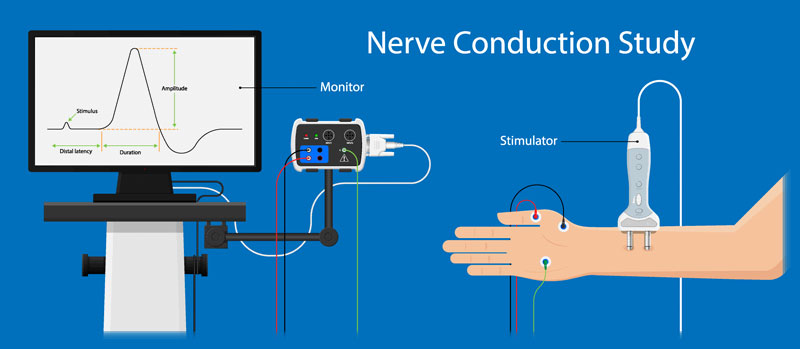EMG (Electromyography) & NCS (Nerve Conduction Studies)
An electrodiagnostic study (EMG/NCS) is typically performed to evaluate conditions that affect the peripheral nerves and/or muscles. The nerve conduction studies (NCS) are performed first and involve stimulating a variety of nerves. This can provide information regarding the velocity at which information travels along a nerve (i.e. how fast is the signal moving along the nerve fibers). The NCS portion of the test can also provide information about the number or volume of nerve fibers picking up and transmitting information. The electromyography (EMG) portion of the exam involves sampling various muscles by placing a very small and thin needle, roughly the size of an acupuncture needle, to examine the neuromuscular activity at rest as well as during an active muscle contraction.

Taken together, the NCS and EMG findings can demonstrate various patterns that may aid in the diagnosis of peripheral nerve and/or muscle disorders. Common diagnoses more precisely identified using EMG/NCS include carpal tunnel syndrome (median neuropathy at the wrist), cubital tunnel syndrome (ulnar neuropathy at the elbow), cervical or lumbar radiculopathy, or peripheral polyneuropathy. More rare diagnoses made by EMG/NCS include brachial or lumbosacral plexopathy, motor neuron diseases, or myopathies.
At a Glance
Dr. Craig Best
- Harvard Fellowship-Trained Interventional Spine & Sports Medicine Specialist
- Double Board-Certified in Physical Medicnie & Rehabilitation and Pain Medicine
- Assistant Professor of Physical Medicine & Rehabilitation and Orthopedic Surgery
- Learn more

